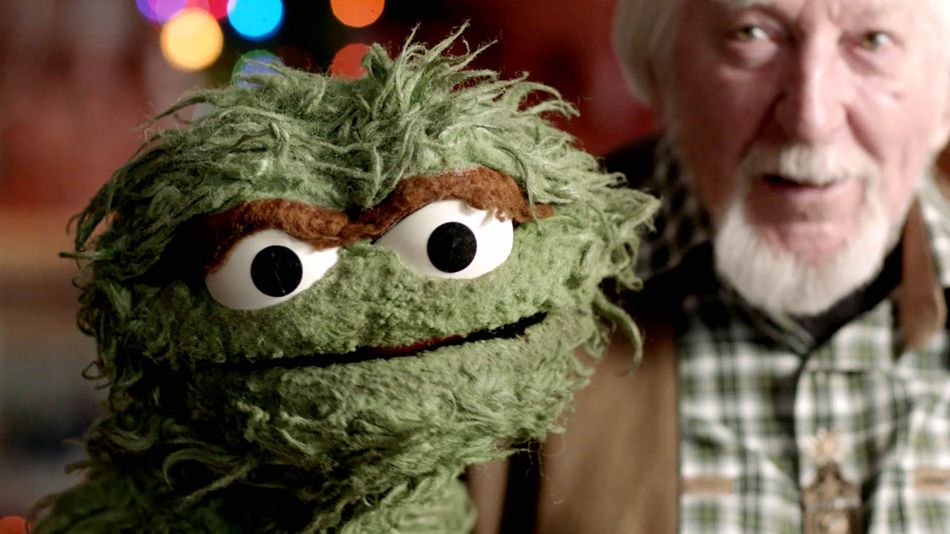
Image: luke Geissbühler / Sundance Institute
Half a century in, Sesame Street has become one of the most reliable staples of childhood in America. You probably grew up with it; your parents probably did too, and your kids are probably growing up with it now. Which can make it easy to forget how radical the show seemed when it first aired. That, in part, is what Street Gang: How We Got to Sesame Street is here to fix.
The documentary takes a broad view of the first two decades of the show, digging into the heady days of its creation and introducing the visionaries who made it happen, while also serving up context about the world the show was being born into, and the impact it made on those first generations of viewers. It’s a lot for one 107-minute movie to handle, and Street Gang tends to be more interested in offering praise than meaningful insight. But if any show’s earned a victory lap, it’s probably Sesame Street, and there’s plenty of good feeling to be found here.
It’ll be hard for anyone with even a modicum of affection for Sesame Street not to enjoy revisiting old clips of Grover and Count and the gang, for example, or peeking behind the curtain to see Caroll Spinney made characters like Big Bird and Oscar come to life. It’s thrilling to watch the show come together under the leadership of co-creators Joan Cooney and Lloyd Morrisett and head writer Jon Stone, and attract talents like Jim Henson and Frank Oz, all under the noble mission of helping children learn — specifically the Black inner-city children, Cooney explains, who tended to be most harmed by the education gap in America.
More than once, the cast and crew describe themselves as “a family,” and the warmth and creativity seems to flow freely among them. The various talking heads — which include Cooney, Morrisett, composer Joe Raposo, various writers, puppeteers, and cast members, and in some cases even their family members — can’t seem to sing each other’s praises highly enough. Among Street Gang‘s most delightful moments are the off-the-cuff behind-the-scenes ones, as when Oz and Henson rib each other in character as Bert and Ernie during flubbed takes.
Image: Robert Fuhring / Sundance Institute
And every single person we hear from seems to profoundly feel the show’s importance. It’s plain to see the determination that helped make Sesame Street a reality when we watch Cooney dismantle the skepticism that television could be used to teach children. (Kids seem to have no trouble learning brands and jingles from TV, she points out.) Cast members like Emilio Delgado (Luis), Sonia Manzano (Maria), and Roscoe Orman (Gordon) speak movingly about the show’s emphasis on racial inclusivity. Basically everyone takes a turn talking about how brilliant their late colleagues Henson and Stone were. A news report from 1969 describes it as “what television would do if it loved people instead of trying to sell to people,” and it seems as apt a description as any.
If any show’s earned a victory lap, it’s probably Sesame Street, and there’s plenty of good feeling to be found here.
But where Sesame Street‘s cast and crew pride themselves in not talking down to their audience or shying away from thorny topics, Street Gang has a tendency to stick to the surface level, jumping from topic to topic before anything can get too deep. So a segment about the death of actor Will Lee — and consequently that of his character, Mr. Hooper — is barely given time to breathe before we’re on to a bunch of cute clips of kids interacting with puppets. Actor Matt Robinson Jr.’s reveal that the decline of Roosevelt Franklin, a puppet character he’d created to represent Black children, was “the beginning of the end” for his time on the show, does not give way to any further exploration of the flaws or complications around the show’s handling of race.
It’s not just the downer stuff. A fascinating glimpse into how the show developed its kid-friendly programming, by rigorously testing the program with kids, consulting with educators, and borrowing techniques from advertising, is left at that — a glimpse. For more, you’ll have to look elsewhere. Henson and Oz’s dynamic partnership makes for some of of the most endearing segments of the film, and could probably fill a feature of its own someday — but Street Gang simply doesn’t have time to dwell on it when there’s so much other ground to cover.
The result is that Street Gang can feel a bit minor and superficial, even as it pays tribute to something it keeps telling us is major and profound. But it works fine as a warm and fuzzy love letter to a beloved program, aimed squarely at grown-ups already inclined to feel warm and fuzzy about this particular program. If the lingering emotion we’re left with after watching Street Gang is a burning desire to rewatch old episodes of Sesame Street, that’ll probably suit most viewers — and HBO, the streaming home of both Sesame Street and this documentary — just fine.
(Parents take note: There’s some mild cursing and at least one reference to sex, so this might not be the movie for your youngest kids. Also, they’ll probably be bored, since it’s mostly just grownups talking.)
Street Gang: How We Got to Sesame Street had its world premiere at the 2021 Sundance Film Festival. It will debut on HBO at a later date yet to be announced.
